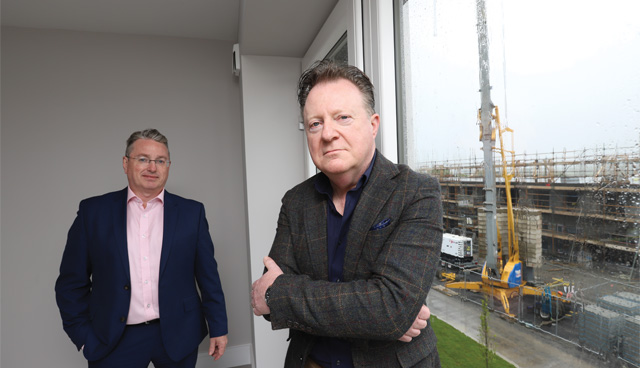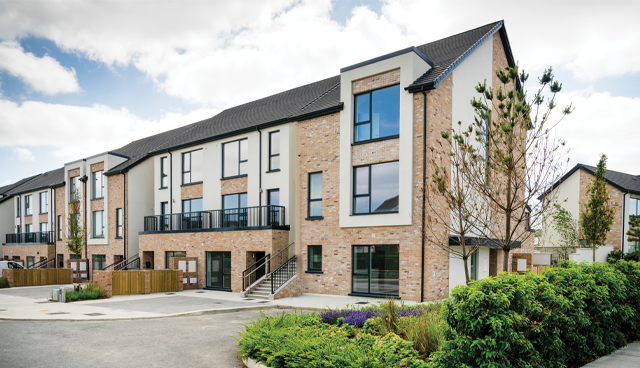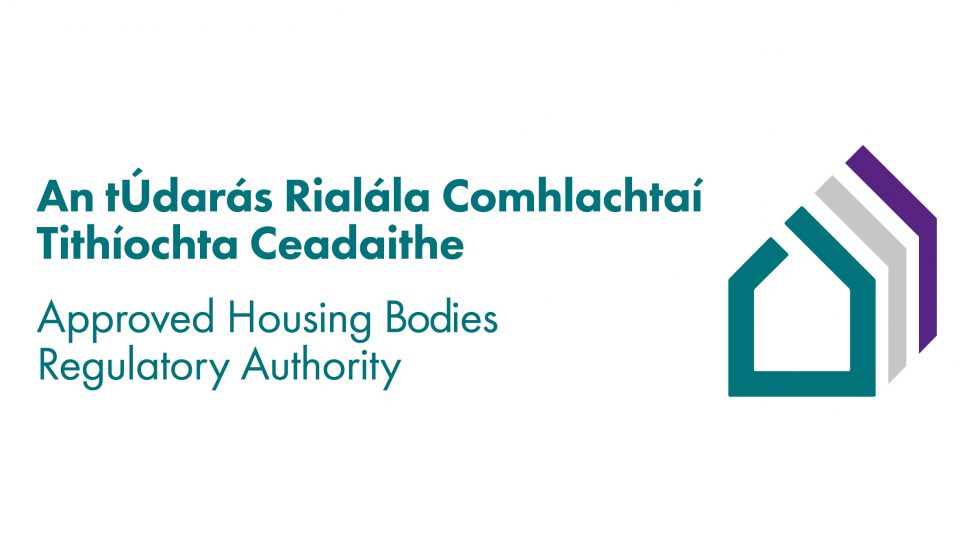
Retrofitting Ireland’s homes
1st June 2021
Supporting the post-Covid recovery: Building more homes for more people
1st June 2021Affordable Housing Bill published

In May 2021, the Cabinet approved the Affordable Housing Bill brought forward by Minister for Housing Darragh O’Brien TD, which will see the coalition government attempt to put its own stamp on solving the issues in Irish housing.
Speaking after the approval of the Bill by Cabinet members, O’Brien said that the Bill was “delivering on the Programme for Government commitment to put affordability at the heart of the housing system and to prioritise the increased supply of affordable homes”.
“For the first time in over a decade we will be empowering local authorities to deliver affordable homes for purchase on their own lands, meaning that middle income earners can be supported to own their own home,” the Minister said.
The Bill is the first “comprehensive standalone legislation dedicated to the provision of affordable housing” in the history of the State. Notable elements within the Bill include:
- the first scheme of direct State-built affordable homes in over a decade;
- the first ever national scheme to provide for the delivery of cost rental housing;
- a new affordable purchase shared equity scheme for homes in private developments; and
- provision for the extension of Part V to a set 20 per cent in every local authority area with a 10 per cent minimum requirement for social homes and a further 10 per cent requirement for affordable homes, where required.
The Cost Rental Equity Loan
The Cost Rental Equity Loan (CREL) scheme, which was announced as part of Budget 2021, has been included in the Bill. The scheme will see the Department make €35 million in loan funding available to approved housing bodies for the purpose of providing cost rental housing. The administration of the CREL funding and the making of loans to approved housing bodies will be managed by the Housing Agency.
“Cost rental” is defined in the general scheme of the Bill as a dwelling “where the rent is set by the landlord or provider at a cost-covering level, as may be prescribed in regulations, but in any case so as to include: delivery/capital development costs; financing costs, including debt finance costs, interest charges and equity returns; management costs of the properties; and maintenance costs, including cyclical maintenance, life-cycling and sinking fund costs”, or a dwelling “that meets any additional requirements as may be prescribed in regulations”, or one that “is designated by the Minister by order… as a cost rental tenancy”.
Shared equity
Under the Affordable Purchase Shared Equity Scheme, first-time buyers will share some of the equity in the home with the State, to a maximum of 20 per cent on the State’s part, in a bid to make housing more affordable for first-time buyers. First-time buyers will also be able to avail of the existing Help to Buy tax break, which is worth 10 per cent of the price up to €30,000, on a house that also avails of the shared equity scheme.
Regional price caps have also been announced based on median prices within the regions: €225,000 for houses in some rural counties, but €450,000 in Dublin and Dún Laoghaire (and €500,000 for apartments there). The equity plan has been the most controversial of the plans included in the Bill, with O’Brien stating that there will be a zero-interest charge on the equity for the first five years, and 1.75 per cent between years six and 15.
Critics of the scheme such as the Central Bank, the ESRI and the Housing Agency have claimed that the equity charges will increase housing prices, citing studies that showed 6 per cent inflation following similar schemes in London. O’Brien has defended the scheme, claiming it will result in a 14 per cent increase in supply with only 1 per cent inflation.
Part V
The Bill includes the extension of Part V, the component of the Development Acts 2000-2002 that allows a local authority to require developers to set aside up to 20 per cent of new developments of five or more houses for social or affordable housing. Under the Planning and Development Act 2000, if 35 per cent of income was not sufficient to enable someone to buy a house, they were eligible to purchase a Part V house.
Under the new legislation of the Affordable Housing Bill, Part V provision will now be a set 20 per cent in each local authority area, with 10 per cent of new developments will have to be ringfenced for the provision of affordable housing “where required”, along with 10 per cent for the provision of social housing.
Serviced Sites Fund
A major component of the discounted costs of both the rental and purchase schemes included within the Bill is the Serviced Sites Fund, a fund originally introduced in 2017 that allows the Government to subsidise the cost associated with construction of new schemes by local authorities funding site infrastructure costs. Under the Affordable Housing Bill, the fund will be used to subsidise the cost of each home by up to €50,000.
Over €10 million of the fund was approved for use in the provision of 238 affordable purchase houses in Donabate, County Dublin in April 2021. The fund aims at the construction of 6,000 affordable purchase homes, although it has failed to meet its targets since its inception.






